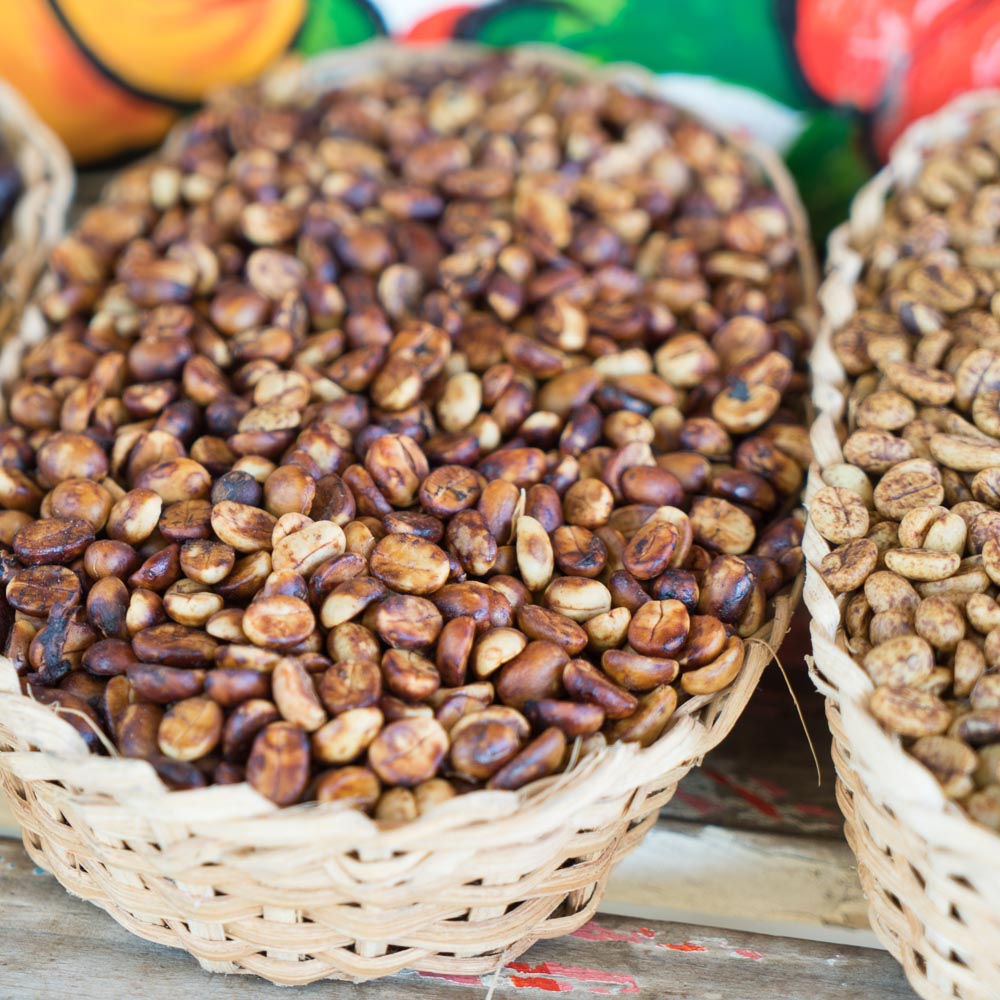
The Sweet Buzz on Honey Washed Coffee
Share
A Sticky (and Sweet) Introduction to Honey Processing
Honey washed coffee – sounds gooey, right? If you’re picturing baristas drizzling honey over your beans, fear not. No bees are required in this process (and no, you won’t find actual honey in your cup). The term “honey” actually comes from the sticky, sweet film of fruit pulp that’s left on the coffee bean during a special processing method. This honey process (also known as honey washed or pulped natural) is all about nature’s candy: the coffee cherry’s own sugars. By not fully washing off the fruity mucilage, farmers let those natural sugars work their magic on the beans as they dry. The result? A coffee processing trend that has specialty coffee lovers abuzz with excitement – and a name that makes for a great conversation starter.
Honey Process 101: Between Washed and Natural
The honey process sits comfortably between the two traditional extremes of coffee processing – not quite “washed,” not quite “natural,” but the best of both worlds. In a fully washed (wet) process, the coffee bean is stripped clean of all fruit layers with lots of water and fermentation, yielding a bright and clean cup. In a natural (dry) process, the entire cherry is dried intact, infusing the bean with heavy fruitiness but also risking funky flavors. Honey processing is the happy medium. Farmers pulp the coffee cherry (remove the skin) but deliberately leave a sticky layer of sweet mucilage on the bean while it dries. This sticky “honey” layer (named for its amber color and texture) clings to the bean and imparts sugars, sweetening the final product. Because less water is used than in washed coffees, honey processing is eco-friendlier than a full wash, yet it avoids the wild fermenty risks of naturals. Essentially, it’s a hybrid method that often gives you the best of both: the fuller body and syrupy sweetness of a natural, coupled with the vibrant acidity of a washed coffee. In short, honey processing creates beans that are literally sugar-coated by nature – setting the stage for some unforgettable flavors.
Flavor Notes: Like Drinking Dessert
Honey processed coffees don’t just have a cute name – they pack a flavor punch that would make any sweet-tooth swoon. Fans often gush that these beans taste like liquid honey in the cup: expect floral aromas, fruity sweetness, a buttery-smooth body, and even subtle notes of vanilla or nougat swirling in the steam. Thanks to that sticky fruit coating, a good honey process coffee often features a rich, syrupy body and a honey-like sweetness that lingers on your palate, balanced by a gentle acidity. You might catch flavors reminiscent of ripe berries, juicy stone fruits, or caramelized sugar – sometimes all in the same sip. The beauty is in the balance: it’s sweet and smooth without overwhelming the origin’s character. In other words, a well-crafted honey processed coffee can taste like dessert in a mug – all natural, no actual honey needed.
Burundi’s Specialty Coffee Scene: Small Country, Big Flavor
In the highlands of Burundi – a little East African country with a big reputation in coffee – magic is happening in the cup. Burundi might be small and less famous than its neighbor Ethiopia, but it’s a rising star in the specialty coffee world (just ask any coffee connoisseur who’s had a sip of a top lot from Kayanza or Ngozi). The nation’s lush hills and volcanic soil provide ideal conditions for coffee cultivation, with countless smallholder farmers growing coffee at impressive elevations (farms in provinces like Kayanza reach around 1,800–2,000 meters above sea level. Nearly 100% of Burundi’s coffee is Arabica, and the country is dominated by the heirloom Red Bourbon variety – a cultivar prized for its sweet, complex cup. Slow growth at those high altitudes, combined with traditional fully washed processing, produces beans known for their complex acidity, silky-smooth body, and candy-like sweetness. In fact, Burundi coffees are celebrated for their vibrant flavor profile: you’ll often find bright citric acidity and delicate floral notes (think jasmine or hibiscus), layered with red fruit flavors and a honeyed sweetness, plus a touch of spice or chocolate in the finish. This unique mix of fruitiness and brightness gives Burundi a special place on the world stage – it’s not unusual to see Burundian coffees winning blind tastings and earning rave reviews for their lively, terroir-driven character. If you love African coffees that are both bright and sweet, Burundi should definitely be on your radar.
Interesting in giving honey washed a try? Check out our current Honey Washed offering from Burundi!
